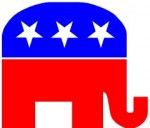Being Right: The Federal Reserve

Since 1913, the Federal Reserve System has dominated banking in the United States. This central banking system is designed to control the nation’s monetary policy with a steady, moderating hand. Yet in the recent economic downturn, the Federal Reserve has transformed into something else entirely. It has offered bailout loans to large investment banks. The bank now engages in fiscal policy, a tactic previously reserved for elected officials in Congress. In the wake of the Fed’s new role, many politicians and voters have questioned the viability of an unelected government branch that has so much power over federal spending. Furthermore, the Fed has endured a storm of media criticism. Every day, it seems, a new report declares that the Fed is struggling to control the fluctuations of the precarious American economy.
Congressmen on both sides of the aisle have argued for an end to the Federal Reserve’s role in policymaking. The events of the last few years show that the Fed does need an overhaul. However, this change should be a reduction of government power rather than a mere shift of power
from one branch to another.
The coalition to end the Federal Reserve’s power is a strange one indeed. The biggest proponent of Fed abolition is Republican Texas Congressman Ron Paul. Personally, I am a huge Ron Paul fan. He is a defender of small government and liberty amidst a Congressional sea of power-hungry partisans. In the eyes of Paul and other Libertarians, the Fed is an unconstitutional extension of federal power. The Federal Reserve is comprised of an appointed board of directors. These officials are highly educated veterans of the banking arena. However, they have no accountability for their decisions. Furthermore, their recent use of fiscal policy tramples on ground that is strictly reserved for the Congress. Only Congress should decide how to spend government money. Paul wants government encroachment to stop, and he sees eliminating the fed as a way to limit government excess.
As a classical liberal, I sympathize with Paul’s position. The Fed has gained too much power in recent years, and any organization with that much power should receive direct accountability. Nevertheless, I cannot help but think Paul does not have it right on this issue. One cause for my concern is the group of Democrats that join him in his fight. These include unsavory Senators such as Chuck Schumer of New York and Chris Dodd of Connecticut. Also on Paul’s side in the House of Representatives are despicable Democrats Barney Frank of Massachusetts and Dan Maffei of New York. These four left-wingers are longtime proponents of heavy government regulations over the economy. Therefore, it is inconceivable that these Senators want to eliminate the Fed for the same reasons as Paul. The Democrats do not want to eliminate the Fed’s powers; they simply want to shift these powers to Congress. This move would mean that all of the Fed’s former powers would come under Congressional supervision. Control of inflation and monetary policy would fail to the Senate Committee on Banking, Housing and Urban Affairs. Surprise! Chris Dodd chairs the Committee and Chuck Schumer is one of the Committee’s most influential members. The push to bring the Fed under Congressional oversight is nothing but a power grab and credit-claiming opportunity for the Democrats. This initiative is business as usual for the Washington Democrats.
It is clear that the Federal Reserve needs a change, but it is also clear that abolition and Congressional oversight are not the answers. The Fed needs a return to its roots. As an appointed body, the Federal Reserve needs to be apolitical. However, recent dabbling into fiscal policy is decidedly political. Fiscal policy should be exclusive to the legislative branch, and even there it should be used sparingly. The great economist Milton Friedman believed that government should only regulate the economy through the instrument of monetary policy. By keeping inflation at two to three percent per year, the government will encourage investment and smooth volatile economic shifts. The control of inflation and the money supply should be the Fed’s only job. Moreover, only the Fed can control inflation. If money supply control were left to the legislative branch, as it is in Great Britain, then policymakers would manipulate the money taps to suit their political needs. Monetary policy is entirely apolitical. Therefore, it is something that the Fed should
control as an unelected, apolitical entity.
Abolition of the Fed appears to be a reduction in government regulation. However, it is simply an opportunity for Congressmen to get their hands on the controls of the U.S. economy. Lawmakers must loosen regulations on the American economy if they wish for lower unemployment and renewed growth. The only way to reduce government regulation is to bring the Fed to its rightful role as an overseer of inflation.
Contact John Lyon at [email protected].








